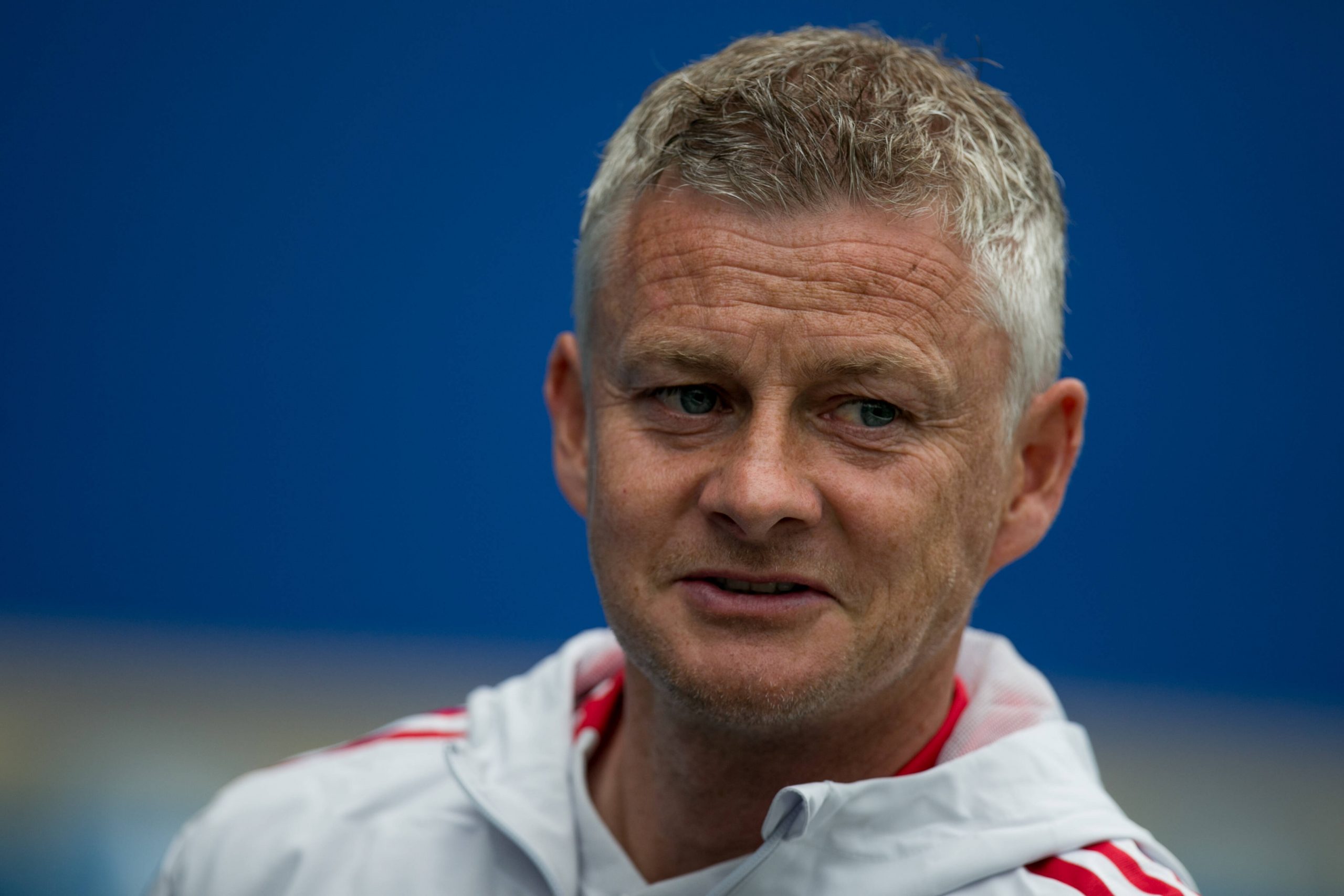Bookended by Brentford’s stunning victory over Arsenal on the opening night and Michail Antonio raising a cardboard cut-out aloft at the London Stadium, it’s been an exhilarating return to proper Premier League football. Predictably, the return of fans in stadiums has lifted the tempo and infused the sport with anxious, furious, giddy emotion.
No team has ridden those waves quite like Manchester United, a team of infuriating false dawns over these last two-and-a-half years of Ole Gunnar Solskjaer’s reign. But while many teams have struggled to adapt to the change, to the new-new normal, United have managed to epitomise their entire identity in just two matches.
Against Leeds United we saw all the explosive attacking brilliance of Solskjaer’s side at their best, channelling the energy and swaggering charisma of the Sir Alex Ferguson era as the Stretford End witnessed thumping half-volleys and teenage prodigies thwacking shots in off the post. Then, before we could even speculate whether a corner had been turned, a 1-1 draw at Southampton encapsulated the tactical flaws that continue to hold the project back.
Let’s start with the positives. Leeds were torn to shreds by Paul Pogba and Bruno Fernandes, who dominated central attacking areas for the hosts, thanks partly to Marcelo Bielsa’s maddeningly open formation and partly to Solskjaer’s clever tactical trick. Leeds tend to empty midfield when on the ball, bursting down the flanks in an attempt to overwhelm the opposition, but that means they are highly vulnerable when possession is turned over.
Four assists for Paul Pogba
Three goals for Bruno Fernandes
Three points for Manchester UnitedWhat an afternoon in front of the Old Trafford fans. 😍 pic.twitter.com/9soACbrfAy
— Squawka Football (@Squawka) August 14, 2021
It was easy for United to rip through those huge patches of grass, catching Bielsa’s high-pressing Leeds in an erratic shape and with no real plan to stop the flow. Credit to Solskjaer for starting Pogba on the left-wing and instructing the Frenchman to drift infield, because this meant Leeds did not think to track his ghosting runs into such a dangerous area. It bodes well for a future tactic of fielding Pogba and Fernandes together as free eights in front of Declan Rice, something Solskjaer is reportedly considering should he land his number one target this month.
With Mason Greenwood flourishing as a number nine and Jadon Sancho and Raphael Varane still to be integrated into the team, Solskjaer appears to have one of the most talented starting lineups in the country. If his excellent man-management and focus on the ‘United Way’ – assertive, direct attacking football that hits opponents in waves – then he might just be able to mount a title challenge. Certainly, the win over Leeds suggests they have the attacking firepower, while Sancho will conjure goals and assists out of nothing.
But even in the afterglow of that opening day win, there was a note of caution. United had beaten Leeds 6-2 the season before. A real test of their progress, and title credentials, would come not against high-pressing teams like Leeds – whose attacking approach provides United with the space they need – but against clubs who sit deep, absorb pressure, and demand United break them down. That is the problem that plagued their 2020/21 campaign.
The 1-1 draw with Southampton suggests they still haven’t solved it. In Sunday’s game, Fred and Scott McTominay once again struggled together, unable to make progressive passes and therefore reducing United to stale, sideways possession. Without an athletic and line-breaking, box-to-box midfielder United appear doomed to sluggish football, lulled to sleep by the opposition’s deep shape and without the dexterity, intent, or in-depth coaching to solve the problem.
TACTICAL CAM: Manchester United’s subpar draw against Southampton was more than just poor player performances. It was the entire team — let me explain why.
Passing Networks: a thread. pic.twitter.com/wP4KOfBzds
— Maram AlBaharna (@maramperninety) August 24, 2021
Rice would help, but this is not an issue that can be solved with personnel alone. Solskjaer appears to lack the detailed positional coaching skills of the likes of Jurgen Klopp, Pep Guardiola, and Thomas Tuchel, whose teams are drilled automatisms: set plays that become muscle memory, pulling a deep shell apart with quick one-touch football in prepared patterns.
It is essential in the modern game because of the growing financial chasm between the elite and the rest, which has made the sport increasingly territorially uneven. To win the Premier League title you need to be prepared to hold 70% possession in most games – and you need to know how to prise open a low block.
In Solskjaer’s defence, Southampton are one of the best at preventing the midfielders from progressing the ball vertically. Ralph Hasenhuttl has his 4-2-2-2 set up to surround the central midfield in a hexagonal shape, the strikers in front of McTominay and Fred and the wide midfielders closing in from the sides. Nevertheless, the Saints won’t be the last team to pull this trick in 2021/22.
Solskjaer wants a midfielder this window, as he sees it as key final piece to title challenge
– frustration that not many fits around
– United may have to wait a year on Rice, as with Sancho
– Bissouma seen as more box-to-box than what Solskjaer wantshttps://t.co/nAsLn9CAEi— Miguel Delaney (@MiguelDelaney) August 26, 2021
Perhaps Sancho’s inclusion will be enough to overcome the problem, his inspirational moments enough for United to win matches through force of will alone. But more likely, Solskjaer’s fatal tactical flaw will undermine him and the club will continue to look worryingly vague – unless teams like Leeds rock up to Old Trafford and allow Manchester United to play.
Ordinarily, it is naïve to draw season-long conclusions from the first two Premier League games. But in the case of Manchester United, what we’ve seen across these 180 minutes aligns precisely with the highs and lows, the optimism and the dashed hope, that has continually defined Solskjaer’s tenure.








